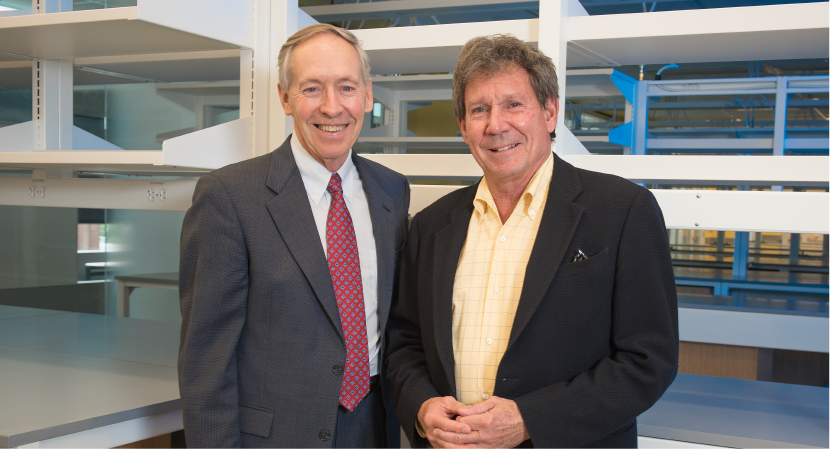
Uniting to Unravel Alzheimer’s Riddle
In the early 1990s, Philip Friedmann and his family received devastating news. Physicians in their Chicago community diagnosed his mother, Marjorie, with Alzheimer’s disease. She was in her late 60s.
On the recommendation of a friend, Friedmann contacted Dennis J. Selkoe, MD, a neurologist at Brigham and Women’s Hospital (BWH). While on a business trip to Chicago, Selkoe arranged to see Marjorie at her home, and continued to care for her until her death 15 years later.
“Dr. Selkoe could not have been kinder or more sensitive during his first visit,” Friedmann recalls. “He’s a very special person, and so dedicated to this work. I love the guy.”
Selkoe authored the groundbreaking discovery linking a buildup of amyloid protein in the brain to the start of Alzheimer’s disease. It is the basis for a clinical trial underway today, led by Selkoe’s colleague, Reisa A. Sperling, MD, MMSc. The goal is to delay—and, ultimately prevent—the onset of Alzheimer’s.
“Tens of millions of people are at risk for Alzheimer’s, and my family wants to help people like my mom before they get to the more advanced stages,” says Friedmann.
As co-director of BWH’s Ann Romney Center for Neurologic Diseases, Selkoe invited Friedmann to join the center’s advisory board. He also told Friedmann about a project that could be game-changing for neurologic research and care—the creation of a new building at BWH, opening in fall 2016, that brings laboratories and clinics once spread around campus under one roof.
Sharing in this vision, Friedmann and his wife, Regan, have given $3 million to support Alzheimer’s research directed by Selkoe, Sperling, and Howard L. Weiner, MD, co-director of the Ann Romney Center for Neurologic Diseases. With this gift, the couple has named the main waiting room on the neurosciences clinical floor.
“This building holds such promise to help Dr. Selkoe and his team move faster to solve the Alzheimer’s riddle,” Friedmann says. “I’d like to see it accomplished in my lifetime, and we’re certainly moving in that direction. I’m hopeful Dr. Selkoe’s years of dedicated research, along with the synergy created by the center, will result in medicines that will finally and substantially help the growing number of people afflicted with Alzheimer’s, as well as their families.”
Selkoe is grateful for Friedmann’s generosity and friendship during the past three decades. “Phil’s long-term backing has helped us assemble a very strong bench for the push toward Alzheimer treatments,” he says. “His latest gift is truly transformative.”